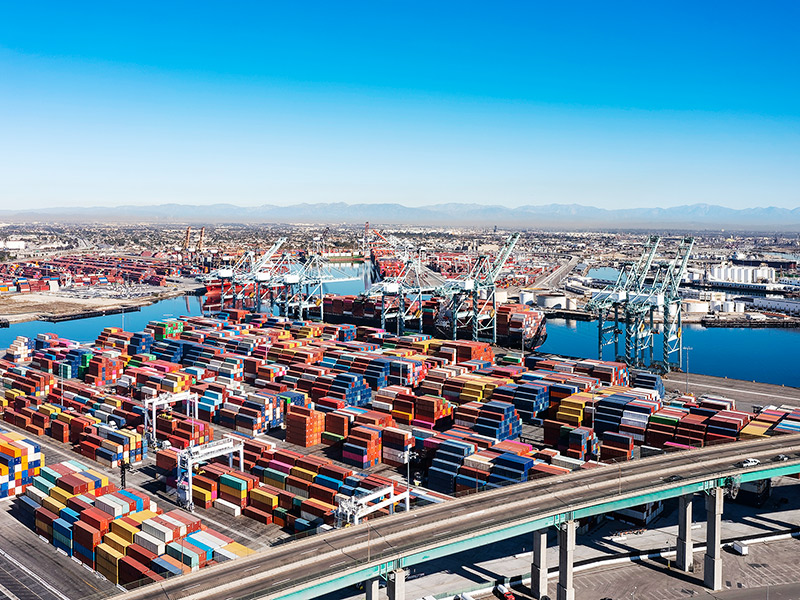
Authors
Key Points
- The Rule of Law, a system under which all are held equally accountable to norms governing the economy and society, is critical for business because it creates a stable environment in which companies are more likely to invest, innovate, and thrive.
- The UN Guiding Principles on Business and Human Rights (UNGPs) essentially direct companies to uphold the Rule of Law in their own operations and across their value chains.
- BSR discusses specific actions that companies can take to uphold the Rule of Law.
In a time of geopolitical turmoil and regulatory uncertainty, companies are increasingly seeking clarity and stability to inform their strategies and decision-making at the operational and value chain levels. While market fluctuations and policy shifts are expected over time, businesses rely on a bedrock of fundamental rules and legal norms that govern the economy and society—as well as governments themselves—in a relatively predictable and fair manner. This bedrock, reinforced by democratic checks and balances, establishes a level playing field on which companies can operate efficiently and effectively while upholding their responsibilities to respect human rights and the environment.
The Rule of Law is a set of principles or ideals for ensuring an orderly and just society, and a system under which all people, institutions, and entities (both public and private), including countries and governments, as well as corporate actors, are held accountable. The United Nations further notes that Rule of Law is “fundamental to international peace and security and political stability; to achieve economic and social progress and development; and to protect people’s rights and fundamental freedoms.” It is inextricably linked not only to the protection and the promotion of human rights, but also to upholding the underpinnings of democracy itself.
Key elements of the Rule of Law include accountability, transparency and openness (particularly from governments), just laws, and accessible and impartial justice and justice systems, which form the foundation for the predictability and certainty that enable business to operate with confidence. In the realm of business and human rights, this can look like ensuring accountability when human rights are violated by businesses, providing equal protection from negative human rights impacts of corporate activities, maintaining transparency in decision-making, providing access to judicial protections when rights are violated by businesses, protecting property rights (including intellectual property), enforcing fair contracts, and upholding respect for human rights by States and businesses.
The Rule of Law is critical for business because it creates a stable environment in which companies are more likely to invest, innovate, and thrive. When the Rule of Law is strong, companies can be more certain that the rules will be applied evenly and that all actors will be held accountable for failing to follow them, including for human rights and environmental harm. Instead of a system that unfairly protects and favors the few, the Rule of Law establishes a level playing field by suppressing corruption and fostering competition. It brings certainty to contracts and property rights and catalyzes a legal framework for impartially resolving disputes in a relatively accessible and transparent way. This not only provides fertile ground for economic prosperity but also encourages respect for human rights and social cohesion, which allows individuals and communities to more meaningfully participate in decisions that affect their daily lives and benefit from this prosperity.
The UN Guiding Principles on Business and Human Rights (UNGPs) establish that States protect and businesses respect human rights. Strengthening corporate adherence to the UNGPs is aligned with the promotion of the Rule of Law, as the UNGPs aim to ensure that businesses operate within a broader system that respects human rights, essentially directing companies to uphold the Rule of Law when conducting their operations, particularly in areas where a strong Rule of Law may be lacking. In so doing, the UNGPs affirm that businesses be accountable for their actions, and that neither they, nor the States in which they operate, are above the law.
Specific actions that businesses can take, such as respecting and promoting the rights of Human Rights Defenders or mandating accountability when doing business in conflict-affected and high-risk areas, are inherently linked to the Rule of Law. Furthermore, companies can adopt policies with expectations and requirements for responsible business conduct and adherence to legislation and the Rule of Law. Businesses can also undertake responsible political engagement to advance the Rule of Law and its principles.
The long path of supporting democracy by upholding the Rule of Law can begin by business actors evaluating their practices, actions, and policies, both internal and external, through the prism of the UNGPs. Relatedly, the UNGPs can serve as an interpretive guide for how to responsibly operate during polarized and changed circumstances, in which democracy and human rights are the North Star. At the very core, the human rights-based approach of the UNGPs can inspire and empower businesses to support and uphold the Rule of Law by holding governments, including their own, and business actors, regardless of their size, accountable and reaffirming that no one is above the law.
To learn more about concrete steps your company can take to advance human rights and align with the UNGPs, please contact BSR's Human Rights team.
Topics
Let’s talk about how BSR can help you to transform your business and achieve your sustainability goals.









